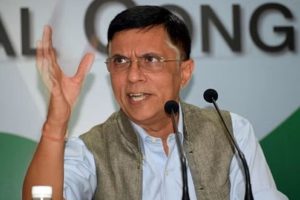US President-elect Donald Trump’s announcement of a proposed Department of Government Efficiency (DOGE) drew varied reactions. The choice of leaders of DOGE ~ Elon Musk who heads Tesla, social media platform X, and rocket company SpaceX, and Vivek Ramaswamy who is the founder of a pharmaceutical company ~ elicited copious criticism, mostly because both gentlemen have zero experience in government. It was also speculated that given his extensive business interests, Musk had been selected to interfere in government functioning, with a view to mould government policies in his favour.
Some others saw the abbreviation DOGE as some kind of sick joke by Trump (actually, the acronym is based on Dogecoin, a cryptocurrency promoted by Musk). Trump defined the remit of DOGE in the following words: “… dismantle Government Bureaucracy, slash excess regulations, cut wasteful expenditures, and restructure Federal Agencies.” The President-elect underlined the importance of DOGE by equating it to the Manhattan Project ~ the programme undertaken during World War II to produce the first nuclear weapons. DOGE is supposed to conclude their work by 4 July 2026, the 250th anniversary of the US Declaration of Independence. Federal bureaucracy in the US has seen a phenomenal increase, originally it had employees only from three small departments ~ State, Treasury, and War, but today the executive branch employs almost three million people.
Advertisement
Elon Musk has primarily aimed his guns at the ‘inflated’ bureaucracy, citing his own record of reducing the staff of Twitter (now X) from 8,000 to 1,500. Overall, Musk has claimed that he will cut Budget expenditure of US$ 6.75 trillion by US$ 2 trillion ~ a saving of around 30 per cent. Be that as it may, promoting bureaucratic honesty and efficiency ~ a contradiction in terms, if there ever was one ~ is a desirable goal for governments the worldover, including India. The loss inflicted by the bureaucracy, through corruption, was quantified at 1.26 per cent of GDP by Professor Bibek Debroy, Chairman of the Economic Advisory Council to the Prime Minister (Corruption in India: The DNA and RNA).
Also, a 2012 study by the Hong Kong-based Political and Economic Risk Consultancy ranked and rated Indian bureaucracy as the worst in Asia with a 9.21 rating out of 10. According to the study, India’s inefficient and corrupt bureaucracy was responsible for most of the complaints that business executives had about the country. The malaise in Indian bureaucracy has been extensively documented, but there has been no noticeable reform since Independence; rather things have gone from bad to worse. The Government has tried to leverage technology to rein in corruption by eliminating discretion, but with little success. Rather, technological solutions have promoted centralisation, that has hamstrung bureaucratic initiative at the operational level.
The reason that bureaucracy could not be reformed was that bureaucrats themselves were put in charge of reforms! A recent example would suffice. After passage of Lokpal and Lokayuktas Act, 2013, every public servant was required to file details of assets and liabilities held by him and his family members every year, by 31 July of that year. The prescribed format was such that it would have automatically exposed hitherto undisclosed assets. For the first year, FY 2013-14, the last date for filing the declaration was 15 September 2014. After several extensions, on 1 December 2016, the Department of Personnel and Training (DoPT) extended the deadline indefinitely, saying that a new format and fresh set of rules were being finalised by the government.
Eight years after this announcement, rules and format are yet to be notified. In response to an RTI query, the DoPT blandly asserted: “Fresh rules to prescribe the form and manner for filing declarations as per amended provisions of Section 44 of the (Lokpal) Act are yet to be notified.” Lokpal, an institution created in the aftermath of a massive agitation, with the aim of eliminating corruption, mirrors this lackadaisical attitude. The Lokpal panel was created in 2019, six years after the passing of the Lokpal Act. Even after five years of its existence, Lokpal does not have even a single prominent case to its name; not a single person has been prosecuted by the Lokpal.
Most of the complaints filed before the Lokpal were closed for being outside its jurisdiction; most of the rest were closed after a preliminary enquiry. Two posts of judicial members in the Lokpal are lying vacant for more than four years. Justice DB Bhosale, a former Chief Justice of Allahabad High Court, resigned from the Lokpal body after only nine months. Expressing disappointment over the functioning of Lokpal, he said: “… If the Lokpal continues to function in this manner, it will fail to meet its objective.” The Parliamentary Standing Committee on Personnel, Public Grievances, Law and Justice (2023) reached a similar conclusion: “However, the performance of the Lokpal seems to be far from satisfactory… At this juncture when India is heading the G20 anticorruption working group, the Lokpal should rise to the occasion and make every effort to strengthen the anti-corruption landscape in the country.” Two Administrative Reforms Commissions were constituted by the Government, the first in 1966, and the second in 2005.
Recommendations of both Commissions are yet to be implemented. The National Police Commission (NPC) submitted eight reports between 1977-1981 suggesting wide-ranging reforms in the existing police set-up, and also a Model Police Act, but none of the major recommendations of the NPC were adopted by any Government. Inaction of the Government on NPC reports, till 1996, prompted filing of a Public Interest Litigation in the Supreme Court (Prakash Singh Vs. Union of India) asking the Supreme Court to direct all Governments to implement the NPC recommendations.
The Supreme Court, in 2006, issued a slew of directions to the Central Government and State Governments for police reforms. Later on, a Model Police Act was drafted on directions of the Supreme Court. The Padmanabhaiah Committee (2000) and Malimath Committee (2003), were set up the to reform the Police and the Criminal Justice System. However, till date none of the proposed reforms has been implemented at the ground level, probably because reforms would reduce the stranglehold of the political executive on the police. Reforming the bureaucracy, and aligning it with 21st century requirements, engaged the attention of the present Government also. The National Programme for Civil Services Capacity Building (Mission Karmayogi) was launced with much fanfare, in September 2020, with a timeline of one year. However, there is no substantial progress, even after four years.
Reforming the bureaucracy is not rocket science. Routine measures that would improve governance with little effort, like giving proper training to subordinate Government employees and formulating SOPs for them, in light of recent technical advances, have hardly been attempted. Also, a matrix of responsibility and accountability for government employees needs to be worked out, so that dereliction of duty can be identified and dealt with. Lastly, the procedure to book delinquent officers needs to be streamlined, by getting rid of the meaningless rigmarole that makes action against bureaucrats virtually impossible. This would put the fear of God in lower-level functionaries, who in addition to service rules are protected by their powerful unions.
Taking a leaf out of Trump’s DOGE initiative, people outside the Government with sufficient authority to operationalise their suggestions should be in-charge of bureaucratic reforms. The usual approach of bureaucrats sitting in judgement over a Committee’s recommendations and implementing them selectively should be discarded. The Government also needs to acknowledge that there is an acute shortage of employees at the cutting edge, like constables and teachers. Shortages have arisen primarily because by an ingenious bureaucratic stratagem, most departments surrendered large numbers of lowerlevel posts, in lieu of some few posts at the top.
Resultantly, bureaucracy now resembles an inverted pyramid, with a multitude of commanders, who have no troops to command. At the operational level, staff shortages are made up by hiring contractual workers, who are not trained and have no responsibility or loyalty. Such staff provide poor service to the public, and are the first to desert their posts, in the face of any crisis. Newt Gingrich, former Speaker of the US House of Representatives has tellingly commented on the futility of addressing only individual instances of corruption: “Until someone is prepared to lay out the systemic problem, we will simply go through cycles of finding corruption, finding a scapegoat, eliminating the scapegoat, and relaxing until we find the next scandal.”
(The writer is a retired Principal Chief Commissioner of Income-Tax)











